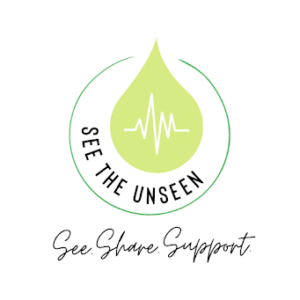“Why do you say depressed? Why not ‘sad?’ Depressed sounds so bad.”
These words are the very reason depressed people feel like no one understands — because a lot of people don’t. A lot of people don’t understand the struggle of depression, how much of a toll it takes on your life, and how much it is not “just sadness.”
Depression is to sadness as a migraine is to a headache. In a sense, they are the same thing, but one is simply annoying and the other eats your entire life as long as it is around. Depression is a real psychological disorder in which your mind digs a huge hole of negative thoughts and throws you in it. In every sense, it is like a disease that spreads throughout your body and affects your wellbeing and ability to function.
The thing is, it is hard to overcome depression. It either eats you until you can’t stand it, or you eventually overcome it. But it is always a battle; you can always slip back into those negative emotions and thoughts.
More than 10 percent of college students have been diagnosed or treated for depression, according to the National Alliance on Mental Illness. That is not including the 40 percent who suffer undiagnosed from a variety of mental health issues. Also, according to the same study, seven percent of students have “seriously considered suicide.” If this is such a widespread issue, why do we shirk away from it? Why don’t we talk about it more than we do?
I think there is a definitely a stigma with mental illness. And for this reason, the cycle of depression is just far too easy to fall into. You get in your mind that people don’t like you, you don’t matter, the world is against you, you are weak, delusional, a failure and you will never matter. Depression tells you all this and the stigmas surrounding mental illness just feed these lies. According to the National Alliance on Mental Illness, concern of stigma is the number one reason students do not seek help for mental illnesses.
So here are a few practical things you can do to combat this issue if a friend or someone you know suffers from depression:
Don’t avoid the issue. Although a depressed person would love for you to ignore their self-harm scars or the fact that they withdraw, this ultimately is not for their benefit. Bringing attention to the struggle is awkward and scary at first, but ultimately the only way to recovery.
Encourage them to get help. And do more than encourage: take them to a counseling center. Show them that you are really there for them and will do what it takes to help them recover. I can tell you right now that reasoning and trying to tell a depressed person that life isn’t so bad will not work. Reason has nothing to do with depression. Depression is a real psychological issue that needs professional guidance.
Be a good friend. Many times depressed people isolate themselves, but their condition also causes others to isolate them because they aren’t generally the life of the party. But just be there for them, invite them to things and be a good friend. You don’t need to nag, you don’t need to push, just let them know that you want them involved and you care about them.
Do something. Raising awareness is a good thing. The Oklahoma Christian University held the candlelight vigil on World Suicide Prevention Day, which helped bring awareness to the problem. But being aware is not enough, just like wearing pink clothes and wristbands that say “I love boobies” is not enough to combat breast cancer. We have to do something about it.
I would really like to see Oklahoma Christian start or promote a support group for those who suffer anxiety, depression, bipolar disorder, and any other mental health issues. Maybe that won’t happen this year, but you can bet that’s one project I hope to contribute on, even as a soon to be alumna.
If you are dealing with depression, I encourage you to contact your best friend, your parents, your resident assistant, your resident director, anyone you feel comfortable talking with at 2 a.m. From there, seek professional help, don’t become one of the 40 percent who go undiagnosed and suffer in silence.
You can contact the University Counseling Center at (405) 425-5250. Oklahoma Christian provides an anonymous online mental health screening here.
Sarah Redding is a senior at Oklahoma Christian University and is the copy editor of The Talon.













Be First to Comment